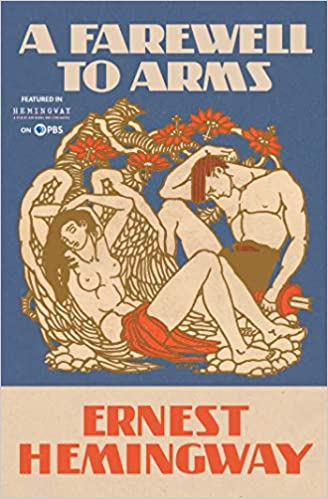
A Farewell to Arms
What is it about Hemingway that you read him and think that he's the closest we've got to an objectively correct style of writing?
Anyway. This was my first long-form Hemingway novel, having heretofore subsisted on his short stories and essays. (It's entirely possible I read The Old Man and the Sea in high school, but I don't remember doing so.) It is funny to read this book and its contrast with the popular perception of Hemingway (Corey Stoll's charming caricature in Midnight in Paris ↗ playing no small role in shaping mine, at least) — the gonzo musclebound vermouth-chugging American Man who spends an entire novel dreading war and then suffering from PTSD. (Somewhat reminiscent of my experience reading Infinite Jest ↗, a novel whose popular perception is dominated by hypermasculine ironic dudebros who love weed and drinking and is in fact about radical earnestness and the dark miracle of substance abuse.)
I liked it a lot. I thought it was moving. I think you could sum up its thesis as, roughly, war is a blight and you must live very quickly in a blight, and of course the ending that swerves so quickly and honestly into bleakness you can see it coming in just enough time — how does that not stick with you?
I'm not sure what else to say: Hemingway's style does not leave a lot up to discursiveness. The only thing I jotted down over its reading was the depiction of the first World War not as a theatrical conflict between two largely homogenous forces but as something deeply native (the terror at the emergence of German forces; the distinct personalities of the Italians as compared to the Brits, etc.). Also, if you're an audiobook person — John Slattery (of Mad Men fame) did a pretty superb reading.
© 2023 Justin Duke • I hope you're wearing your favorite sweater.